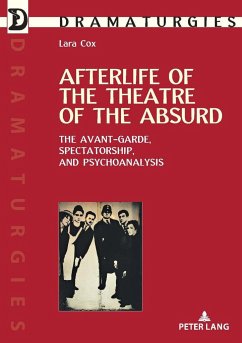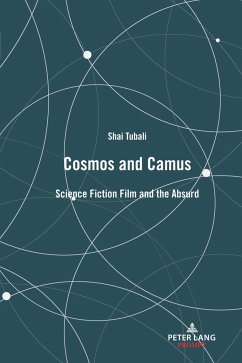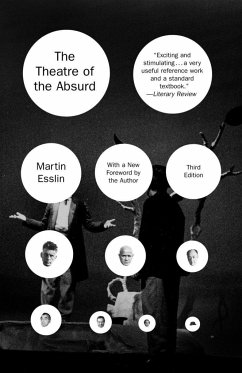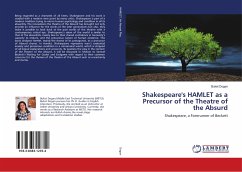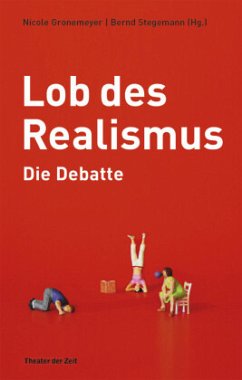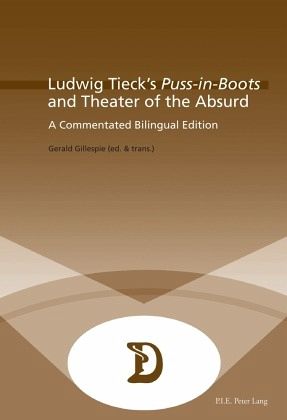
Ludwig Tieck's "Puss-in-Boots" and Theater of the Absurd
A Commentated Bilingual Edition
Versandkostenfrei!
Versandfertig in 6-10 Tagen
53,50 €
inkl. MwSt.

PAYBACK Punkte
0 °P sammeln!
Johann Ludwig Tieck (1773-1853) was one of the most formative influences of the romantic movement, inspiring such major figures as Novalis and Hoffmann. Not only did his tales and novels shape the course of German romantic fiction; as a translator he helped to naturalize Shakespeare and Cervantes; as an editor he was among the first to recognize Kleist. Tieck's precocious invention of ironic-fantastic comedy quickly found resonance among fellow romantics, who worked under the parallel influence of the Goethean revolution in drama exhibited in Faust. Yet Tieck's play Puss-in-Boots (1797) had to...
Johann Ludwig Tieck (1773-1853) was one of the most formative influences of the romantic movement, inspiring such major figures as Novalis and Hoffmann. Not only did his tales and novels shape the course of German romantic fiction; as a translator he helped to naturalize Shakespeare and Cervantes; as an editor he was among the first to recognize Kleist.
Tieck's precocious invention of ironic-fantastic comedy quickly found resonance among fellow romantics, who worked under the parallel influence of the Goethean revolution in drama exhibited in Faust. Yet Tieck's play Puss-in-Boots (1797) had to wait a full century before its impulses were transmitted, by Pirandello, to modern anti-theater and theater of the absurd.
The Tieckian direction anticipates the metaphysical strains both of symbolist and of existentialist theater and the beneficent absurdism of Wilder and Ionesco. As the boundary between stage and audience completely dissolves in Puss-in-Boots, we experience the transcendent delight of pure theater and unsettling doubts about our own roles on the world's stage.
Tieck's precocious invention of ironic-fantastic comedy quickly found resonance among fellow romantics, who worked under the parallel influence of the Goethean revolution in drama exhibited in Faust. Yet Tieck's play Puss-in-Boots (1797) had to wait a full century before its impulses were transmitted, by Pirandello, to modern anti-theater and theater of the absurd.
The Tieckian direction anticipates the metaphysical strains both of symbolist and of existentialist theater and the beneficent absurdism of Wilder and Ionesco. As the boundary between stage and audience completely dissolves in Puss-in-Boots, we experience the transcendent delight of pure theater and unsettling doubts about our own roles on the world's stage.



